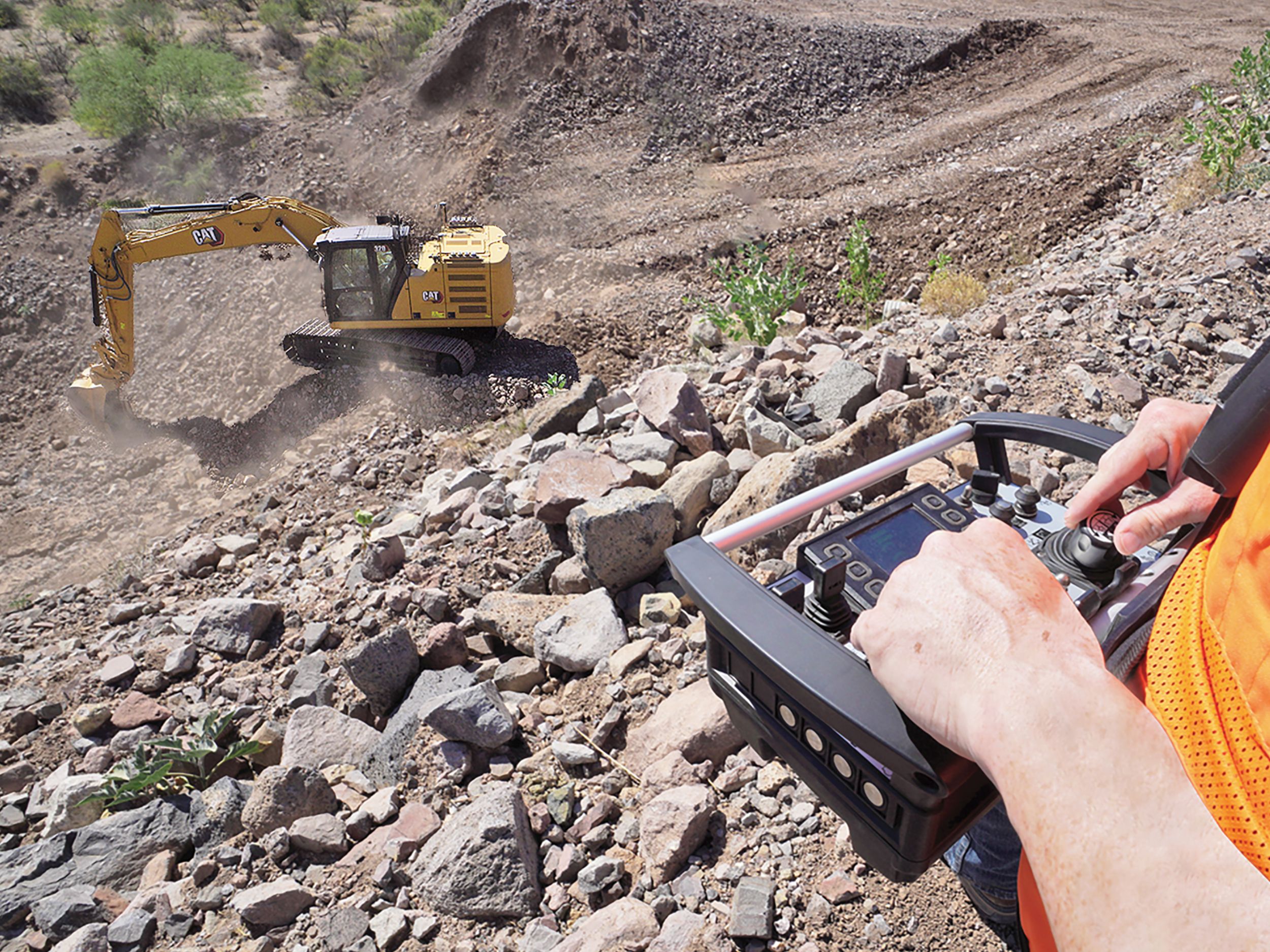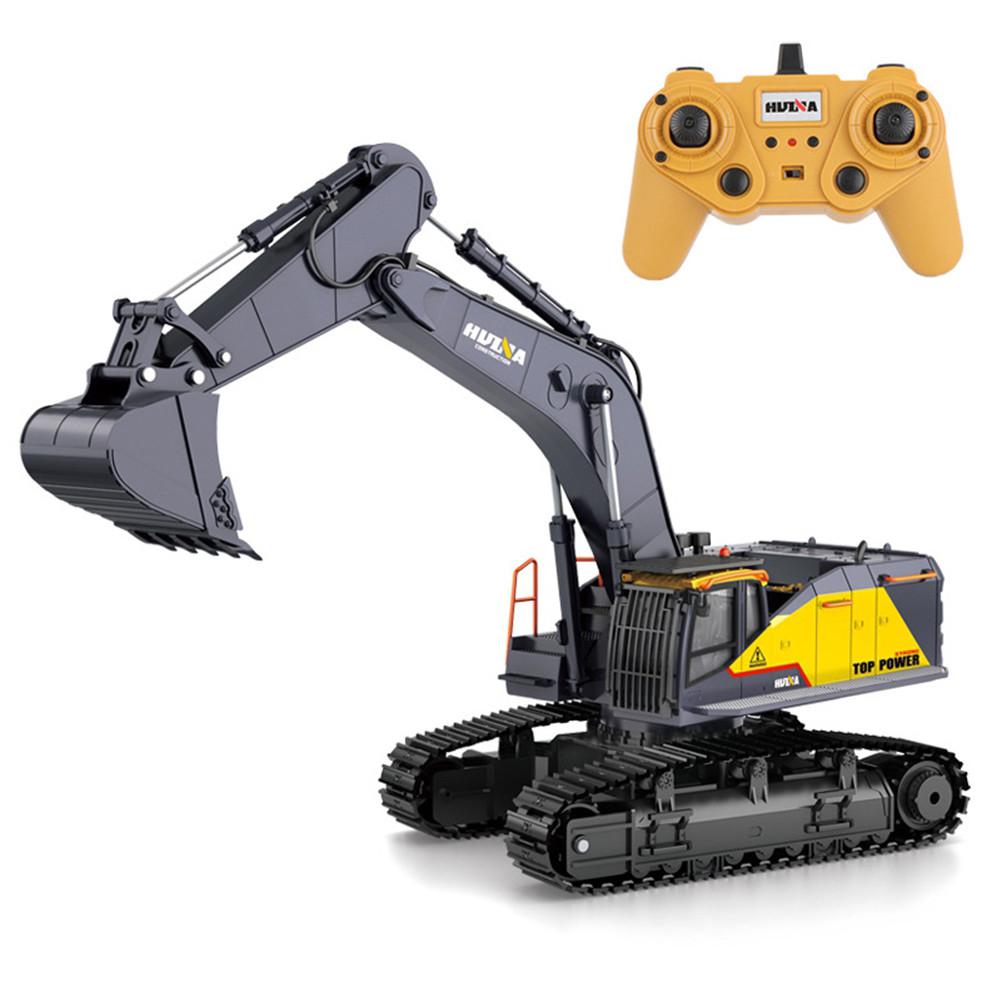Discover the Relevance of Excavator in Modern Building And Construction Projects
Excavators are vital devices in modern construction projects. Their convenience enables them to execute a vast array of tasks, from excavating and grading to demolition and website prep work. Advanced features, such as hydraulic accessories and GPS, enhance their capabilities and efficiency on job sites. As the industry advances, the relevance of excavators grows much more. Comprehending their role can expose understandings right into the future of building practices. What lies ahead for these machines?
The Convenience of Excavators in Different Projects
Excavators are commonly associated with large building jobs, their versatility enables them to be used in a broad variety of applications, from residential landscape design to utility upkeep. In metropolitan settings, excavators can navigate tight spaces to dig foundations for homes or install drainage systems. Their capability to do fragile tasks makes them optimal for landscaping jobs, where they can dig deep into for fish ponds or plant trees. On top of that, excavators play a crucial function in utility upkeep, successfully excavating trenches for pipes or wires without disrupting bordering locations. In farming applications, they aid in land clearing and dirt preparation. Moreover, their flexibility allows them to be furnished with numerous accessories, improving their functionality across different jobs. This complex nature of excavators not only improves numerous building procedures but also demonstrates their integral function in modern-day facilities growth and upkeep.
Secret Functions and Sorts Of Excavators
The conversation on key functions and kinds of excavators highlights the important features that make these devices important in building and construction. Various excavator kinds, each designed for certain jobs, demonstrate their flexibility and effectiveness throughout different applications. rc excavator. Recognizing these classifications and functions is essential for optimizing their use in contemporary building and construction jobs
Excavator Keys In Review
Excavators play a crucial duty in modern building and construction, using convenience and performance across various tasks. These heavy equipment devices can be found in a number of types, each tailored for particular applications. The most usual kinds consist of spider excavators, understood for their stability on unequal surface, and rolled excavators, which provide better flexibility on smooth surfaces. Tiny excavators are favored for small-scale projects and limited areas, while long-reach excavators are designed for deep digging. Furthermore, there are specific excavators, such as hydraulic excavators, which enhance power and accuracy. Each kind features unique capacities, making them important for tasks varying from excavating and grading to demolition and material handling. Understanding these variations allows building experts to pick the appropriate excavator for their project needs.
Trick Includes Explained
Understanding the essential functions of excavators improves their efficient application in building and construction jobs. Excavators are identified by their effective hydraulic systems, which supply the essential pressure for digging, training, and moving materials. Their verbalized arms allow for a wide variety of activity, promoting exact procedures in constrained areas. In addition, the variety of accessories, such as pails, grapples, and augers, broadens their flexibility to meet different task needs. The size and weight of excavators likewise add to their security and maneuverability on different surfaces. Furthermore, developments in innovation have caused the assimilation of GPS and automation, enhancing accuracy and performance in excavation jobs. These functions collectively position excavators as essential devices in modern-day building and construction.
Applications in Building
Changing building websites, excavators play a pivotal role throughout numerous applications, varying from residential structure jobs to large-scale framework developments. These functional devices are furnished for jobs such as digging structures, trenching for energies, and website grading. Various kinds of excavators, including crawler, wheeled, and mini excavators, give specific advantages tailored to the job requirements. Spider excavators succeed in rough surfaces, while wheeled excavators use wheelchair on paved surface areas. Tiny excavators are perfect for constrained rooms, making them preferred in city settings. The performance and power of excavators considerably accelerate building and construction processes, making certain prompt project completion. Their versatility better boosts their significance, allowing building groups to take on a varied range of challenges properly.
Enhancing Effectiveness and Efficiency on Work Sites
Making the most of performance and efficiency on work websites is a critical objective in contemporary building and construction. Excavators play a pivotal duty in achieving this objective by simplifying various jobs. Their ability to execute numerous features-- such as grading, lifting, and excavating-- reduces the need for additional devices, therefore saving time and resources.Moreover, excavators improve workflow by enabling faster conclusion of tasks. With sophisticated functions like hydraulic accessories and general practitioners modern technology, they can execute precise procedures that lessen errors and revamp. This precision not just enhances the top quality of work however also maximizes material use, contributing to set you back savings.The adaptability of excavators enables them to adjust to various website problems, making sure that tasks advance smoothly despite obstacles. By integrating excavators right into building procedures, groups can significantly enhance their overall performance, causing timely job conclusion and enhanced productivity.
Safety And Security Benefits of Making Use Of Excavators
Excavators greatly boost safety on building websites via improved operator visibility and lowered manual labor dangers. By supplying operators with a clear sight of their environments, excavators aid to stop mishaps and injuries. Furthermore, the equipment lessens the need for employees to take part in dangerous hand-operated tasks, even more advertising a safer work atmosphere.
Boosted Driver Exposure
Building and construction sites can be disorderly and filled with prospective risks, boosted driver presence plays an essential role in making certain safety when using excavators. Modern excavators are made with large, unhampered home windows and purposefully positioned mirrors, enabling operators to preserve a clear view of their environments (rc excavator). This enhanced visibility is crucial for spotting pedestrians, various other machinery, and different barriers, substantially reducing the threat of accidents. Furthermore, several excavators include advanced technology, such as sensing units and cameras, to provide drivers with added perspectives, further improving recognition. The capability to see even more clearly not only help in reliable procedure but additionally fosters a much safer job setting, making it simpler for operators to navigate intricate construction websites without compromising security standards
Reduced Manual Work Threats
When manual work is minimized through making use of excavators, many safety advantages emerge, markedly improving the health of construction employees. Excavators decrease the physical pressure related to hefty lifting and repetitive jobs, effectively decreasing the threat of bone and joint injuries. By automating procedures such as excavating, grading, and relocating materials, they allow workers to maintain a more secure distance from prospective risks. In addition, excavators are equipped with advanced security attributes, such as rollover protection systems and enhanced driver ergonomics, which additionally guard personnel on site. The result is a significant decrease in office mishaps and injuries, causing boosted efficiency and spirits among construction groups. Ultimately, the adoption of excavators adds to a safer and more reliable building setting.
Excavators in Earthmoving and Website Preparation
In modern construction, a significant portion of earthmoving and site prep work jobs counts on the performance and adaptability of excavators. These equipments are designed to handle my link different soil kinds and terrain, making them indispensable for rating, digging, and trenching activities. Their hydraulic arms can be outfitted with different add-ons, such as containers and augers, allowing operators to tailor their technique based upon particular job requirements.Excavators stand out at best site relocating large quantities of earth swiftly and effectively, which accelerates the general building timeline. They can navigate tight areas and challenging sites where traditional devices may battle, enhancing productivity. In addition, the accuracy of excavators guarantees that website preparation sticks to strict specs, lessening the risk of mistakes that could bring about expensive rework.
The Function of Excavators in Demolition Tasks
Excavators play an essential function in demolition jobs, as they have the power and dexterity needed to take down structures successfully. Furnished with numerous attachments such as hydraulic breakers, shears, and grapples, these machines can adjust to different demolition needs, whether for small structures or huge industrial websites. Their adaptability makes it possible for operators to tackle intricate tasks while preserving safety and security and precision.In enhancement to their demolition abilities, excavators facilitate debris elimination, guaranteeing that work websites continue to be safe and orderly. By damaging down structures right into workable pieces, they enable streamlined clearing and recycling of products, straightening with contemporary sustainability efforts.Moreover, excavators can access tight areas and browse uneven terrain, making them important in city demolition projects. In general, their robust design and multifunctionality make excavators a critical asset in the demolition stage of building, contributing substantially to task timelines and performance.


Future Fads in Excavator Modern Technology and Use
As the building and construction industry progresses, advancements in excavator technology are poised to transform their usage and performance markedly. One considerable pattern is the integration of automation and expert system, permitting excavators to run with marginal human treatment. This shift will improve precision in tasks such as grading and trenching, minimizing human mistake and raising productivity.Additionally, the increase of electric and hybrid excavators is forming a much more lasting construction setting, reducing carbon emissions and gas costs. Enhanced telematics systems are also arising, allowing real-time surveillance of machine efficiency and maintenance requirements, which can result in better operational efficiency and longer tools lifespan.Moreover, improvements in attachment technology are expanding the adaptability of excavators, enabling them to do a wider range of jobs. The mix of these patterns demonstrates a future where excavators are smarter, greener, and more versatile, inevitably reshaping construction task dynamics.
Frequently Asked Questions
Exactly How Do Excavators Contrast to Other Building And Construction Equipment?
Excavators, characterized by their flexibility and power, excel in digging and earthmoving contrasted to other equipment. Their capability to perform various jobs, consisting of training and demolition, makes them essential in building and construction tasks, boosting total efficiency.

What Is the Ordinary Lifespan of an Excavator?
The typical life-span of an excavator typically ranges from 7,000 to 10,000 operating hours, depending on upkeep, usage conditions, and design. Correct treatment can extend this life-span, ensuring peak performance throughout its functional years.
How Are Excavators Kept for Ideal Performance?
Excavators require regular maintenance for peak performance, including routine assessments, liquid checks, filter substitutes, and timely repairs. Carrying out a preventative upkeep routine helps extend their life-span and warranties effective procedure in various building and construction atmospheres.
What Are the Costs Connected With Buying an excavator vs. leasing?
The prices connected with getting an excavator versus renting vary significantly. Renting deals lower upfront costs however can build up over time, while acquiring requires a significant first investment, however offers lasting financial savings and asset possession advantages.
What Training Is Called For to Operate an Excavator?
Operating an excavator needs specialized training, typically consisting of security protocols, equipment procedure techniques, and ecological awareness. Accreditation programs usually mandate practical experience, enabling operators to deal with different tasks successfully while making certain conformity with sector laws. The most moved here common types consist of spider excavators, known for their security on irregular surface, and wheeled excavators, which supply better movement on smooth surface areas. Miniature excavators are preferred for tight rooms and small tasks, while long-reach excavators are designed for deep digging. In addition, there are specialized excavators, such as hydraulic excavators, which improve power and precision. Different kinds of excavators, including spider, rolled, and mini excavators, provide certain advantages tailored to the task requirements. Crawler excavators excel in harsh surfaces, while rolled excavators offer flexibility on smooth surfaces.